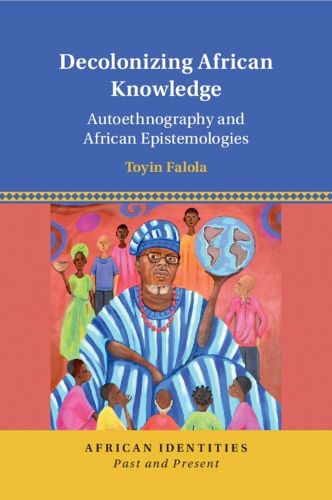Readings Newsletter
Become a Readings Member to make your shopping experience even easier.
Sign in or sign up for free!
You’re not far away from qualifying for FREE standard shipping within Australia
You’ve qualified for FREE standard shipping within Australia
The cart is loading…






Addressing the consequences of European slavery, colonialism, and neo-colonialism on African history, knowledge and its institutions, this innovative book applies autoethnography to the understanding of African knowledge systems. Considering the 'Self' and Yoruba Being (the individual and the collective) in the context of the African decolonial project, Falola strips away Eurocentric influences and interruptions from African epistemology. Avoiding colonial archival sources, it grounds itself in alternative archives created by memory, spoken words, images and photographs to look at the themes of politics, culture, nation, ethnicity, satire, poetics, magic, myth, metaphor, sculpture, textiles, hair and gender. Vividly illustrated in colour, it uses diverse and novel methods to access an African way of knowing. Exploring the different ways that a society understands and presents itself, this book highlights convergence, enmeshing private and public data to provide a comprehensive understanding of society, public consciousness, and cultural identity.
$9.00 standard shipping within Australia
FREE standard shipping within Australia for orders over $100.00
Express & International shipping calculated at checkout
Addressing the consequences of European slavery, colonialism, and neo-colonialism on African history, knowledge and its institutions, this innovative book applies autoethnography to the understanding of African knowledge systems. Considering the 'Self' and Yoruba Being (the individual and the collective) in the context of the African decolonial project, Falola strips away Eurocentric influences and interruptions from African epistemology. Avoiding colonial archival sources, it grounds itself in alternative archives created by memory, spoken words, images and photographs to look at the themes of politics, culture, nation, ethnicity, satire, poetics, magic, myth, metaphor, sculpture, textiles, hair and gender. Vividly illustrated in colour, it uses diverse and novel methods to access an African way of knowing. Exploring the different ways that a society understands and presents itself, this book highlights convergence, enmeshing private and public data to provide a comprehensive understanding of society, public consciousness, and cultural identity.